Issue 121 – Monday 29 April 2024
HeadsUp
This week we welcome Professor Karin Bryan, who comes to us from Waikato University via our university’s Strategic Recruitment Programme. This programme enables the employment of staff who have been identified as “having the capacity to elevate the University’s distinctive strengths and address strategic gaps in world-leading research, scholarship, and teaching”. Karin is a coastal scientist with a transdisciplinary outlook and lines of connection into physical geography, environmental science and marine science. The last of these connections is reflected her having a fractional (20%) appointment into the Institute of Marine Science. Karin comes to us with significant administrative and leadership experience and will doubtless be an enduring asset to the school as well as a valued colleague. Welcome Karin!
What else? As we move into May, I’ve started undertaking annual performance and development review (ADPR) conversations and enjoying the rare opportunity of a sustained ‘interview’ that can traverse aspirations as well as achievements. Capex requests are now being considered (thanks Kevin for assuming leadership of that committee), the new ENV Stage 1 course development process continues and we have graduation on Monday 6th.
It seems no so long ago (but probably was!) that all lectures were cancelled to maximise staff and student participation in graduation. Sadly, along with the procession through the city and a speech by a notable guest at each ceremony, this is no longer the case. Let’s at least try and keep graduation a meeting-free day and, regardless of whether we will be onstage, try and make it to the Science reception at the Pullman Hotel to congratulate our graduands.
I also need to offer two reminders.
First, staff and postgraduate students are issued swipe cards on a basis of trust and with an understanding that they will only be used for personal access to restricted area. Recently we had a situation in which this understanding was breached and someone who was not entitled to be in one of our postgraduate spaces was let in and cause upset to a legitimate ENV user. Please be vigilant with access cards, only ever letting yourself in.
Second, on account of our enrolment figures we have been asked to reduce our expenditure from that budgeted for this year. Please ensure prudent decisions are made if you are a budget-holder. Additional expenditure requests beyond what has been planned are unlikely to be approved this year. We are in constrained times and must focus efforts resolutely on lifting our enrolments.
Have a great fortnight and congratulations to all who are graduating and who taught and supervised graduands. It takes a village to raise a child, as they so, but so too it take a wide university community to graduate a student.
Robin Kearns, Head of School.
ENV-stories
As a 5-year-old in 1970 I escaped the city returning to the family farm in the Bay of Plenty. To give you context, the atmospheric CO2 was 325 ppm; the biomass of wild mammals was 145% greater, the human population was about 3.5 billion and people were walking on the Moon. In those days children played and solved problems without adult supervision, so I disappeared into the neighbouring forest and swamp for hours or even days at every opportunity. This was the seed of my intertest in Nature and my thinking in ‘Systems’ rather than what was taught at school. With a view of Whakaari-White Island volcano steaming away every day and frequent earthquakes that rattled a tall wooden home, I always wondered about Earth and geology. Finding obsidian flakes in the hills sparked the imagination of some mystery volcano (in fact they were human artifacts, whatever). My love of Nature led to astronomy too and wanting to be an astronaut. Well, that wasn’t going to happen, so I dropped out of last year of school and got a guitar. But no-one was going to pay me to play riffs like Keith Richards and Jimmy Page. After a stint of hard work, I went to university remembering that Apollo 17’s Jack Schmitt was actually a geologist. Trips to Antarctica and deep-sea excursions are meant to ‘float your boat’ if you are a geologist. However, seeing wildlife in real wilderness while I lived in Canada and USA for a few years was when I discovered paradise. Now I look back over decades and I see the World racing to a crazy Mordor energy economy. It has reinvigorated me to teach young people about Systems thinking and to question mythical human innovations called technology.
Phil Shane
Whakawhanaungatanga – Communities
Volume 4 is now live!!
Prepare to embark on a journey through the cutting-edge realms of population genetics, bioinformatics, and beyond. From decoding the mysteries of alien invaders to unraveling the blend of machine learning and healthcare, this edition is a treasure trove of scientific marvels straight from the heart of our university. A heartfelt shout-out to everyone involved in bringing this edition to fruition – our guest writers, tireless executive team, and of course, our loyal readers. Grab your copy from our campus stalls or check out the digital release on our website for those who prefer to explore virtually! Link here: https://www.uoascientific.com/full-editions. Are you eager to get involved with future editions? We welcome your article pitches through our socials, website or google form https://shorturl.at/eiuIM

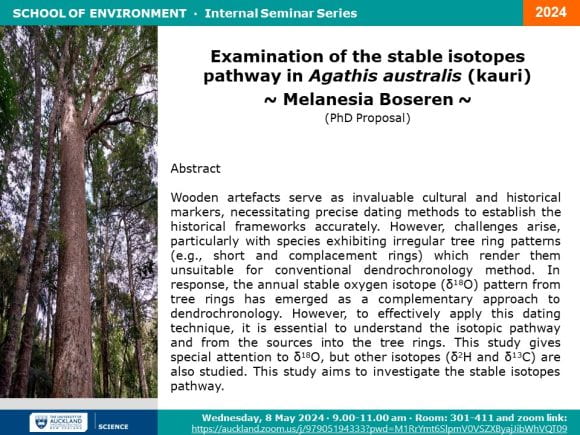
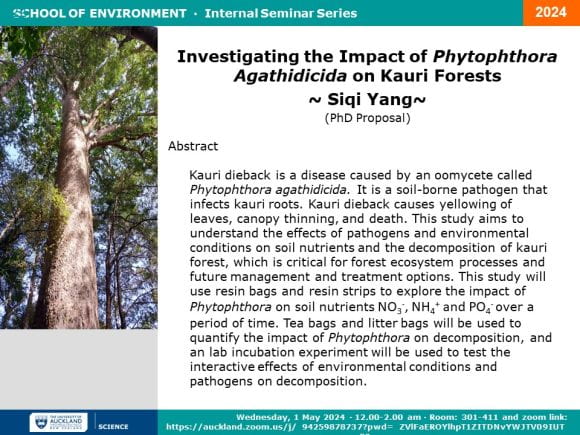
COMPASS Postgrads is excited to present a Wine & Nibbles night for postgraduate students in the School of Environment!
Join us on Friday 17th May 7pm – 11pm at Mr Murdochs Rooftop Tavern for drinks and nibbles to celebrate nearing the end of the semester.
RSVP HERE or by scanning the barcode on the flyer!
Nibbles will be provided.
Postgraduate students and staff are welcome!
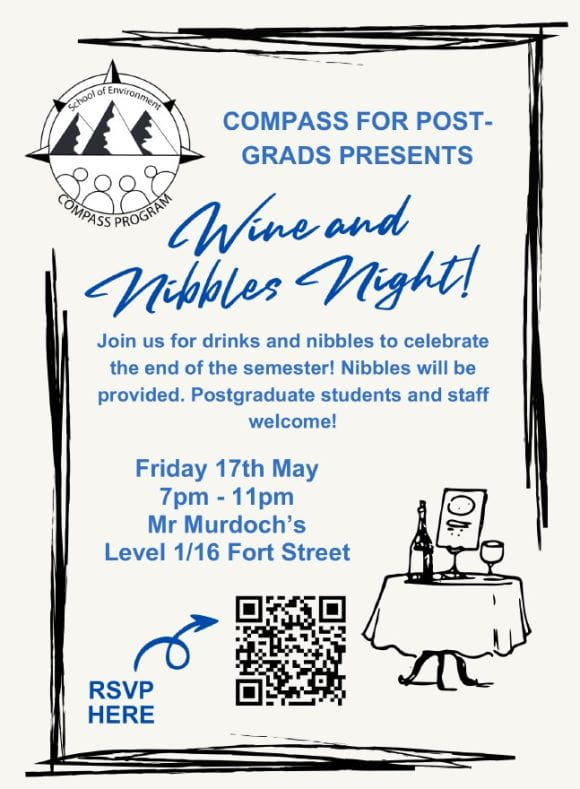
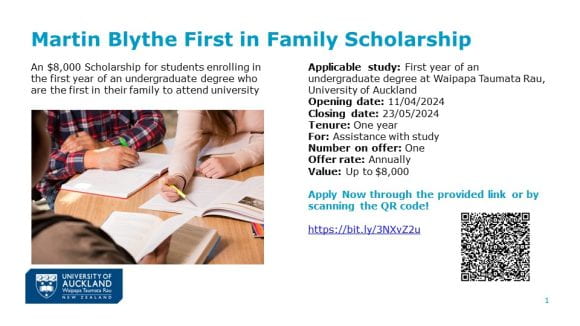
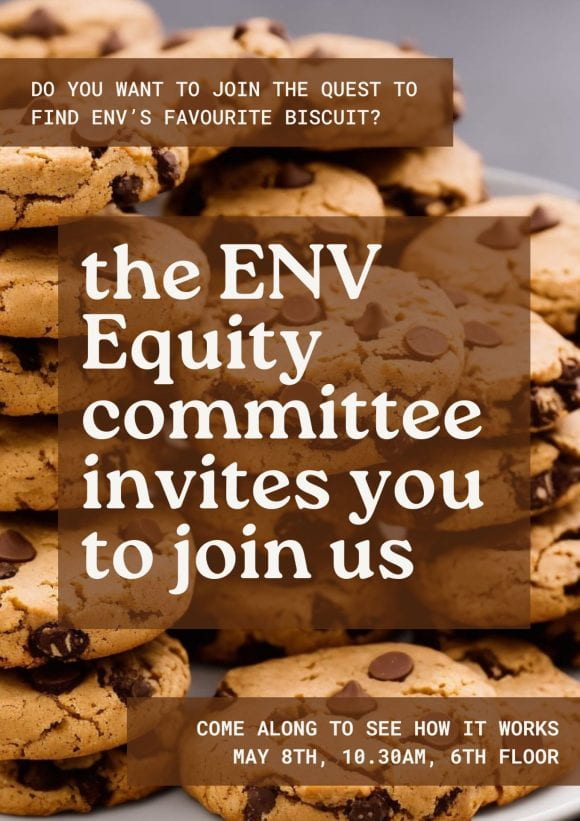
An introductory R Workshop is being run on Thursday 11th and Friday 12th of July 2024. The course will be run by the Statistical Consulting Centre (SCC) in the Department of Statistics.
What’s covered in the workshop?
Introduction
Getting familiar with R
Using R Studio and loading projects/scripts
Basic functions using R
Reading in Data Files (.csv, .xls/.xlsx)
Introduction to R Objects. How R thinks (vectors, matrices, basic data formats)
Working with data(sets)
Cleaning and subsetting
Merging datasets and reformatting
Grouping variables and summarising
R graphics
Starting with plots in R (boxplots, histograms, bar graphs)
Graphics in R with ggplot2 (customising plots)
Data analysis
Introduction to performing t-tests, chi-square tests, ANOVA, and general linear models
As per our previous introductory R workshops, the cost is $300 for UoA students and staff.
You can pay using your PRESS account, research grant, or other UoA account.
You can also opt to use a debit/credit card (however we will have to also add GST for this type of payment – please contact Joei Mudaliar j.mudaliar@auckland.ac.nz for further instructions).
The payment authorisation form for UoA participants paying from a UoA account is attached.
The cost for non-UoA attendees is $500 + GST. Please contact Joei Mudaliar (j.mudaliar@auckland.ac.nz) for payment instructions.
We will be sending out a pre-workshop information email the week prior to the course, however here are some of the details:
Location
We will be in room 302.190. Building 302 is on the corner of Symonds St and Wellesley St. The room we will be using is on level 1, room 190.
Time and schedule
The approximate schedule for both days is attached (since this is the schedule from our previous course, it may yet be altered very slightly).
We will start at 9am and finish at 5pm.
Morning and afternoon tea will be provided, and there are cafes nearby for lunch.
Computers
We will be using a Faculty of Science computer lab.
You are also welcome to use your own laptop. However, please make sure that you have downloaded R and RStudio onto your machine before the workshop (they are free to download).
We will also include some instructions on how to do this in our pre-workshop information email.
Access to computers and the internet
We will arrange access to the lab computers for all non-UoA participants.
We will also have a guest wireless password for non-UoA participants who are bringing their own laptops.
UoA staff and students will be able to access the FoS computers using their normal UoA upi and password.
I hope you can make it on the 11th and 12th July 2024, and we look forward to seeing you there.
Ngā mihi (Kind regards),
Joei Mudaliar | Kairuruku Ratonga ā-Rōpū (Group Services Coordinator)
Department of Statistics | Faculty of Science
The University of Auckland | Te Whare Wānanga o Tāmaki Makaurau
28th AINSE Winter School: Expressions of Interest open (expressions of interest received until 15 May 2024) (flyer attached and available online)
The annual AINSE Winter School offers a once-in-a-lifetime opportunity for senior undergraduate students to discover the potential for further research in nuclear science and related technologies. In the online week of the 2024 event, students can meet and engage with future research collaborators, gain deep insight into ANSTO’s landmark research facilities, and network with other like-minded students from all across Australia and New Zealand.
Online participants can apply for a further opportunity to explore two world-class ANSTO research facilities in person in September, after the online event concludes.
Expressions of Interest for the 28th AINSE Winter School, held online from 1-10 July 2024, are open to all senior undergraduate students interested in learning about the techniques of nuclear analysis. Such techniques have applications across a wide range of disciplines, including archaeology, biology, chemistry, engineering, geology, materials science, medicine, nanotechnology, and physics.
The AINSE Winter School provides an ideal opportunity for students in their final year of undergraduate STEM studies to meet potential collaborators and explore potential options for future research projects using ANSTO facilities in collaboration with ANSTO researchers. Throughout the week, students attend a mix of online lectures, social activities, and experiments relating to:
- Neutron Scattering (using neutron beamlines on the OPAL Multipurpose Reactor);
- X-Ray and IR Scattering (using beamlines on the Australian Synchrotron)
- Ion Beam Analysis (using ANSTO’s suite of linear accelerators);
- Environmental studies using natural radioactivity (including sedimentation rates and erosion, geomorphology, and climate change); and
- Nuclear techniques in materials science.
A virtual tour of other major ANSTO facilities is also included in the program, alongside an online Research Roundup networking event for students to discuss future research opportunities working alongside ANSTO researchers.
For more information, please visit the Winter School website or contact AINSE at forum@ainse.edu.au.
Scholarship AINSE ANSTO French Embassies (SAAFE): applications open (applications close 1 July 2024) (flyer attached and available online)
AINSE, in partnership with ANSTO, the Embassy of France in Australia and the Embassy of France in New Zealand, are delighted to announce that applications for the Scholarship AINSE ANSTO French Embassies (SAAFE) Program are currently open, for international travel in the period 1st October 2024 – 31st December 2025.
Applications close 11.59 pm 1st July 2024 (Australian Eastern Standard Time).
The Scholarship AINSE ANSTO French Embassies (SAAFE) Program is an exciting international exchange opportunity open to Early Career Researchers at the Ph.D. and postdoctoral level. Each successful applicant is provided with costs towards a return flight and up to A$200 per week (up to a maximum of 26 weeks) to support accommodation expenses associated with a visit from:
- Australia/New Zealand to France, or
- France to Australia.
The SAAFE Program supports Early Career Researchers to expand research in nuclear science and engineering in the areas of Health, Environment and Nuclear Technologies, and to initiate sustainable research networks and linkages in order to support Australia, New Zealand and France in research and innovation.
Eligible applicants must be a PhD student in, or hold a postdoctoral appointment at, a French university or AINSE-member university. The research project must be in collaboration with at least one researcher employed by ANSTO or another Australian AINSE-member institution (in the field of nuclear science and engineering and in the areas of Health, Environment or Nuclear Technologies), and at least one researcher employed by a French university or French research institution.
The research internship is required to take place over a period of 8–26 weeks between 1st October 2024 – 31st December 2025.
For more information, including the application form and terms & conditions, please visit our SAAFE website or contact AINSE on +61 2 9717 3376 / applications@ainse.edu.au.
Marian Cranwell Prize ($3,000)
The Prize will be awarded annually to the student who, in the opinion of the selection panel, completed the best thesis or dissertation focussing on the areas of environmental or ecological science, including the cultural history of environmental areas, in fulfilment of the requirements for a Masters or PhD degree. This is open to Students in School of Environment as well. If you have in mind any worthy nominees could you let me know as soon as convenient please and provide a note in support of your nomination.
Kind regards,
Barkha Bheda
Group Services Administrator
School of Biological Sciences: gsa.biologicalsciences@auckland.ac.nz
Exercise Sciences: gsa-exercise@auckland.ac.nz
FUNDS FOR ENGAGEMENT WITH HAPORI MAORI
School of Environment has a small budget for enabling engagement with Maori, particularly through koha or contributions that may be needed to initiate research relationships. In disbursing that putea, priority is given to academic staff working on behalf of groups of staff or students, pre/consultation activities for ethics approval and collaborations that are not readily funded through other mechanisms. As it is desirable to utilise the budget before the end of the academic year, however, all well-reasoned proposals will be considered. If interested, email a brief, one paragraph description of a proposed activity and a budget for how funds will be utilised to Brad (b.coombes@auckland.ac.nz). Although there are no prescribed maxima or minima for these grants, the limited scope of the overall budget will likely preclude grants in excess of $1000. Applicants should also be mindful of UoA guidelines or policies for gifting and koha.
Post Graduate Wellbeing ….. where to go
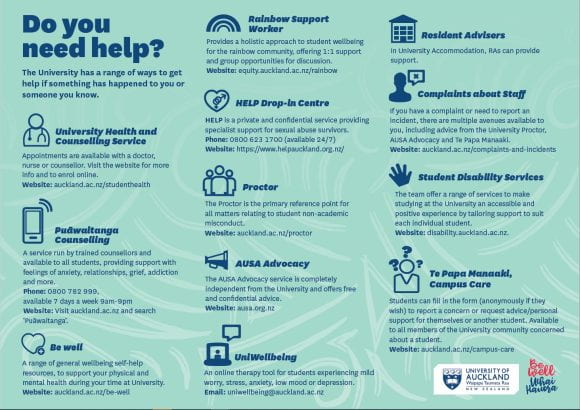
If you are currently coordinating a PG course, could you please post the inforgraphic slide to your Canvas course page so students will know the resources that are available throughout the University.
3k writing grant available for students
These are currently on hold. Rangahau will reopen this fund for requests later in the year, please keep an eye on P-cubed for more details.
Rangahau – Research
Funding for Research Retreats
The Rangahau Committee has a small amount of funding set aside to sponsor Research retreats (e.g grant writing workshops, paper writing). This can be up to 2k per team, with a minimum 2 SoE participants.
If you have an idea that you would like considered, please submit a short paragraph explaining the intention and benefits of the retreat to katarzyna.sila-nowicka@auckland.ac.nz.
Proposal development support
The Rangahau Committee has a small fund set aside to help with proposal development (e.g. writing support, support to scope proposals etc). If you have an idea that fits within this scope please get in touch with Kelly Kilpin to discuss further.
Funding
Funding Calls
| RSNZ: Catalyst: Seeding (Round2) | |
| This fund aims to facilitates new small and medium pre-research strategic partnerships that cannot be supported through other means, and with a view to developing full collaborations that could be supported through Catalyst: Strategic over time. | |
| Value/Duration: | Internal Deadline: |
| Up to $80,000 (excluding GST) over a maximum of 2 years is available for each successful feasibility study. | 12 pm, Tuesday 9 July 2024. |
| Further Information (funding call, guidelines, registration info):
· Website If you are interested, please notify your FIRST (research support) of your intent to apply for this scheme to receive important information and updates in relation to this fund |
|
| Spencer Foundation – Research Grants on Education: Large | |
| This fund is intended to support education research projects that will contribute to the improvement of education. The research concept is “field-initiated” with the grant designed to support rigorous, intellectually ambitious and technically sound research that is relevant to the most pressing questions and compelling opportunities in education | |
| Value/Duration: | Internal Deadline |
| · Value: Grants are worth between USD125,000 and USD500,000 (circa NZD206,000 -NZD826,000), depending on the funding tier selected
· Duration: up to a maximum duration of 60 months |
Two – Stage Submission Process:
· Intent to apply: 5pm, Wednesday 22 May 2024 (this is the funder deadline date) · Full Proposal: 5pm, Tuesday 11 June 2024. |
| Further Information (funding call, guidelines, registration info, templates):
If you are interested, please notify your FIRST (research support) of your intent to apply for this scheme to receive important information and updates in relation to this fund |
|
| Ako Aotearoa Research and Innovation Agenda (AARIA) 2024 | |
| Ako Aotearoa requests for proposals to contribute systems change for the tertiary education sector and more equitable learner outcomes by inviting proposals for innovative, ako centred projects. Ako Aotearoa expect all applicants to align their research proposals with all of their four broader priorities, and at least with one of their targeted priorities:
· Ōritetanga (Equity) – Achieving system-wide equality for all ākonga, including Māori, Pacific, neurodiverse, disabled, youth, and learners from low-income backgrounds. · Te Tiriti o Waitangi (Treaty of Waitangi) – Honouring Te Tiriti o Waitangi through tertiary education, including Te Reo provision, Kaupapa Māori education, Mātauranga Māori provision. · Auaha (Innovation) – Responding to changes in education, especially developments in technology (e.g. AI), innovative and flexible programmes which can support the immediate needs of ākonga, tertiary education system such as Te Pūkenga and the Reform of Vocational Education (RoVE) and work-based learning. · Hua Akorganga (Learner Outcomes) – Education and training that delivers for all learners, including supporting work readiness of all learners, online and distance learning options meets the needs of all learners, providing learning opportunities for people who wish to change careers. |
|
| Value/Duration: | Internal Deadline |
| · Value: Grants are worth between $10,000 and $50,000
· Duration: 5 months – 12 months |
5 pm, Wednesday, 5 June 2024. |
| Further Information (funding call, guidelines, registration info, templates):
If you are interested, please notify your FIRST (research support) of your intent to apply for this scheme to receive important information and updates in relation to this fund |
|
Aotearoa New Zealand Tāwhia te Mana Research Fellowships
The Royal Society Te Apārangi have announced they will be administering the new Aotearoa New Zealand Tāwhia te Mana Research Fellowships, with the funding round opening soon. These fellowships consists of three schemes, targeted at early, mid- and established career researchers respectively:
- New Zealand Mana Tūāpapa Future Leader Fellowship
- New Zealand Mana Tūānuku Research Leader Fellowships
- New Zealand Mana Tūārangi Distinguished Researcher Fellowship
Further information can be found on the RSNZ website. Once the call opens, details will be circulated via P-cubed.
New Zealand-German academic exchange programme (ENZ-DAAD)
ENZ-DAAD’s Programmes for Project-Related Personal Exchange (PPP) is open again and inviting applications from students across all subject areas who are completing their doctorate, and from academics who have completed their doctorate in the last five years.
The application for 2024 close on the 28th of June.
Aotearoa New Zealand Tāwhia te Mana Research Fellowships
The first details of the new Aotearoa New Zealand Tāwhia te Mana Research Fellowships, developed as part of the Te Ara Paerangi – Future Pathways reform have been released. These new schemes replace the Rutherford Discovery, Rutherford Foundation and James Cook Fellowships, which will no longer be offered from 2024.
These fellowships will support early, mid, and senior researchers. For further details, please see MBIE’s web page which details eligibility, duration and value.
Funding calls will be publicised via P-cubed once they become available so please keep an eye on this space.
Announcements
| MBIE Endeavour Support Sessions 2024 | ||||
| Support for the 2025 MBIE Endeavour round is currently underway. UniServices have organised a number of events to support your application, please refer to the Research Hub for further details and register at the links below:
· MBIE Kick-Off Session: is a strategic value-add for those already familiar with contestable funding in Aotearoa, and those who wish to learn more about what can be funded through the two Endeavour funding mechanisms.
· MBIE Real Stories: provides an interview-style discussion with special guest, Paul Kilmartin, who was a successful Endeavour Research Programmes applicant in 2023. Participants will experience a “live exemplar” as he shares his journey from research idea to application, describing the obstacles, successes, support, and key takeaways throughout the Endeavour process.
Please reach out if you have any questions: aul.researchdevelopment@uoa.auckland.ac.nz |
| Horizon Europe Training Webinars | ||
| These new sessions will continue to focus on critical areas of the bid development process and key steps for identifying a funding call/collaborative opportunity in the Horizon Europe Programme.
· Best Practice in Collaborative Proposal Writing: This webinar will give an insight into the standard ways of planning the work in a Horizon Europe project.
|
Health, Safety and Wellbeing
Vaccinations available at Unichem. Flu is seasonal and Covid can be done any time of the year. There are more vaccines available that can be free, follow the link to learn more.
More information about vaccines: Vaccines available in Aotearoa New Zealand | Immunise | Te Whatu Ora
Personal and Professional development UoA
Academic life is underpinned by other set of skills that need or it is good to have, amongst this OD offers
- First Aid, advanced and refresher
There are alternatives, for First Aid Certificate. to these by external sources that might fit your busy calendar, please seek advice on these options. Before booking double check that it covers these units
Level 1 – Basic
NZQA 6402 – Provide resuscitation level 2 – 1 Credit
NZQA 6401 – Provide first aid – 1 Credit
Level 2 – Advanced
NZQA 6400 – Manage First Aid in an Emergency Situation (Field Activity Leaders)
Upcoming Comprehensive courses with seats available
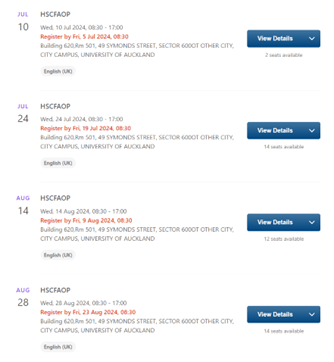
First Aid Refresher:
Must have valid first Aid certificate
Upcoming revalidation courses
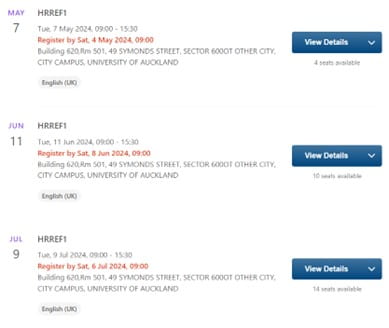
Other Providers
- Red Cross
- Saint Johns
- Besafe
- Meditrain
- First Training (offers outdoors first aid course)
- A1 first Aid
At OD you can also get training in the following:
- Mental Health 101
- Fire safety at work
- Risk assessment
- Health and Safety for Line Managers and Academic Leaders
- Health and Safety Representative Training Sessions
If you want Saint John’s offers Online Mental Health Training
Remember near misses should also be reported in Damstra, not only injuries.
Publications | Articles
- Schloffel-Armstrong, S., Bates, L., Kearns, R. A., Coleman, T., Baluyot, A., Barber-Wilson, H., Best, M., Corattur, T. S., Davidson, M., Fisher, K., Griffin, A., Jelitto, P., Lawrence, M., Manuel, M., Read, C., Rigden, C., Rodger, L., Tesfaye, S., Tuhoro, C., Buttle, E., & Soukoutou, R. (2024). ‘Uncertainty as constant presence’: Emerging geographers reflect on their housing experiences in Aotearoa. New Zealand Geographer, 80(1), 59–64. https://doi-org.ezproxy.auckland.ac.nz/10.1111/nzg.12387
- Han, C., Bowen, M., & Sutton, P. (2024). The response of the upper ocean to tropical cyclones in the South Pacific. Journal of Geophysical Research: Oceans, 129, e2023JC020627. DOI: https://doi.org/10.1029/2023JC020627
- R. Bedford, W. Friesen & Y. Underhill-Sem. 2023. Regional Population Dynamics and Mobility Trends in the Pacific: Report to the Ministry of Foreign Affairs and Trade. Wellington, 93 pp.
- Brook, MS, Nicoll C (2024). Brief report of fatal rainfall-triggered landslides from record-breaking 2023 storms in Auckland, New Zealand. Landslides https://link.springer.com/article/10.1007/s10346-024-02258-0

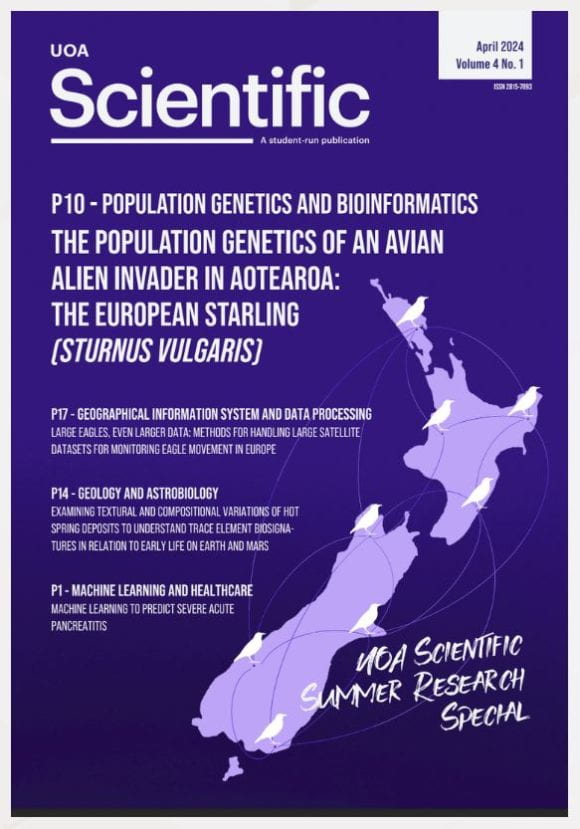
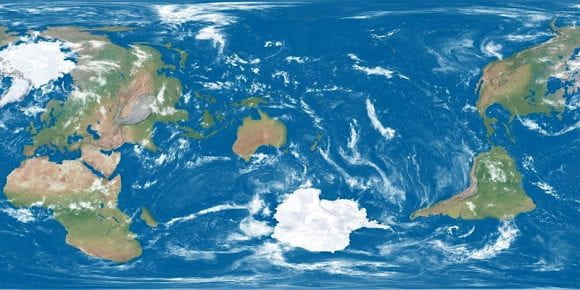 Mon, 22 Apr 2024 4:00 PM – 6:00 PM
Mon, 22 Apr 2024 4:00 PM – 6:00 PM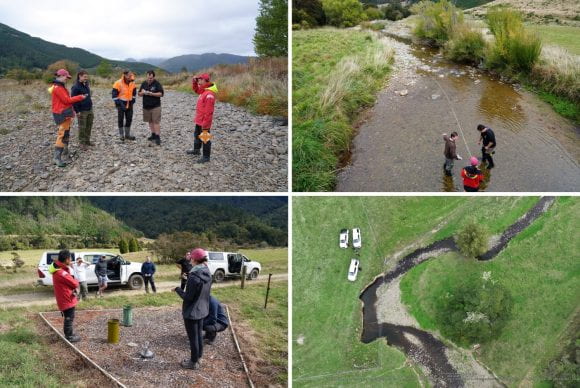 In collaboration with Jon Tunnicliffe, the council has set up monitoring stations in 20 sub-catchments, to refine rainfall-runoff models under a variety of land-cover conditions (e.g. rangeland, forest [native, plantation], recently de-forested, mixed cover). Students had the opportunity to visit a number of these river gauging sites and to collect data for their individual projects. The projects address the feasibility of various runoff attenuation measures, intended to delay and divert flood flows while improving habitat diversity and enhancing ecosystem services. The council’s new LiDAR drone was deployed to collect high resolution data and imagery for the project, while students collected information on channel substrate and vegetation. Discussions with landowners and land managers provided many first-hand insights into the many challenges of flood management in the area. Results of the student work will feed back to the project, broadening the scope of the work while providing students with some practical, applied experience and a new array of geomorphology/hydrology skills.
In collaboration with Jon Tunnicliffe, the council has set up monitoring stations in 20 sub-catchments, to refine rainfall-runoff models under a variety of land-cover conditions (e.g. rangeland, forest [native, plantation], recently de-forested, mixed cover). Students had the opportunity to visit a number of these river gauging sites and to collect data for their individual projects. The projects address the feasibility of various runoff attenuation measures, intended to delay and divert flood flows while improving habitat diversity and enhancing ecosystem services. The council’s new LiDAR drone was deployed to collect high resolution data and imagery for the project, while students collected information on channel substrate and vegetation. Discussions with landowners and land managers provided many first-hand insights into the many challenges of flood management in the area. Results of the student work will feed back to the project, broadening the scope of the work while providing students with some practical, applied experience and a new array of geomorphology/hydrology skills.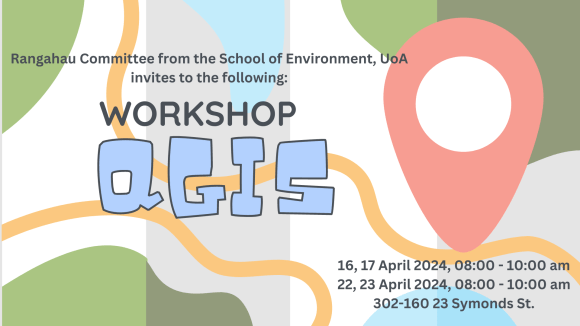
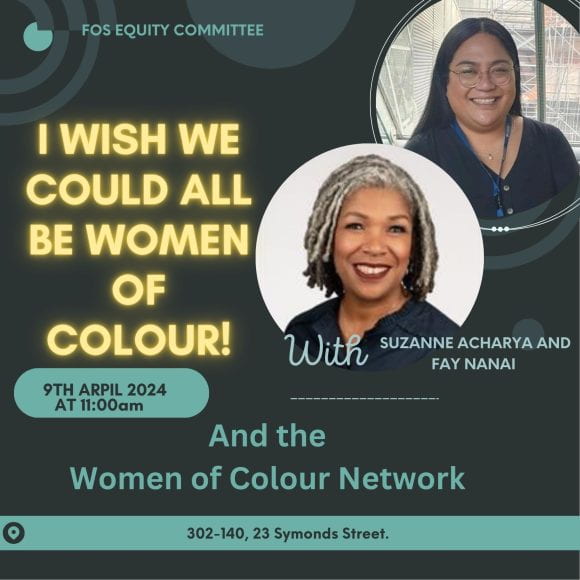
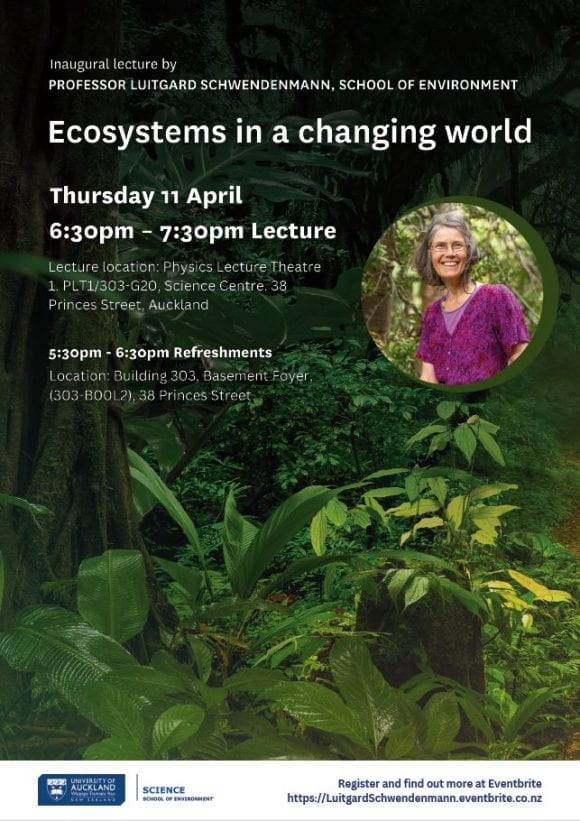

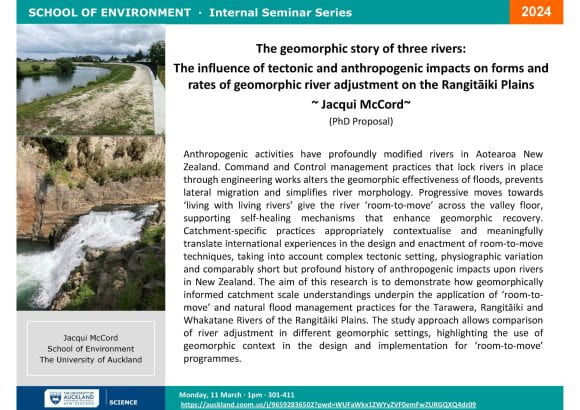
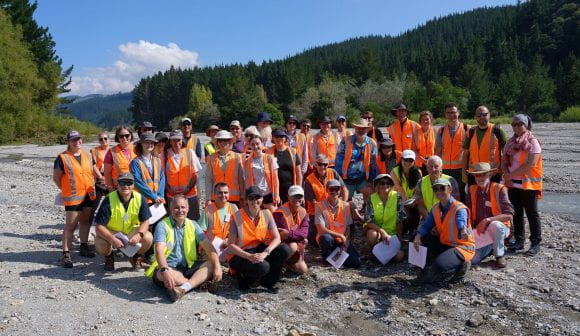 The 20th biannual Australian and New Zealand Geomorphology Group conference was held in Tairāwhiti Gisborne from the 12th to 16th February. The meeting was organised by a team from the University of Auckland led by Jon Tunnicliffe, with the theme: ‘geomorphic disturbance and recovery’. Landscape enthusiasts were aggregated from across Australia, New Zealand and much further afield to learn about current geomorphological research – in particular to discuss what landscape recovery means in a region that is frequently devastated by disturbance events. 81 oral and 21 posters were presented, with topics that ranged from the impacts of geomorphic disturbance through to hazard assessment, applied geomorphology, methodological advances, aeolian systems and numerical modelling. Most importantly, six Masters and PhD students from the University of Auckland presented their research and all did an outstanding job!
The 20th biannual Australian and New Zealand Geomorphology Group conference was held in Tairāwhiti Gisborne from the 12th to 16th February. The meeting was organised by a team from the University of Auckland led by Jon Tunnicliffe, with the theme: ‘geomorphic disturbance and recovery’. Landscape enthusiasts were aggregated from across Australia, New Zealand and much further afield to learn about current geomorphological research – in particular to discuss what landscape recovery means in a region that is frequently devastated by disturbance events. 81 oral and 21 posters were presented, with topics that ranged from the impacts of geomorphic disturbance through to hazard assessment, applied geomorphology, methodological advances, aeolian systems and numerical modelling. Most importantly, six Masters and PhD students from the University of Auckland presented their research and all did an outstanding job!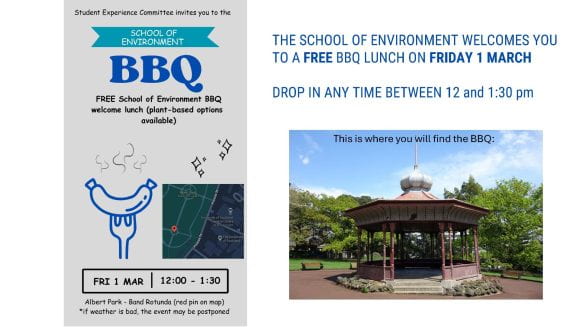 All students and staff in the School of Environment are welcome to come to a FREE BBQ lunch put on by the Student Experience Committee
All students and staff in the School of Environment are welcome to come to a FREE BBQ lunch put on by the Student Experience Committee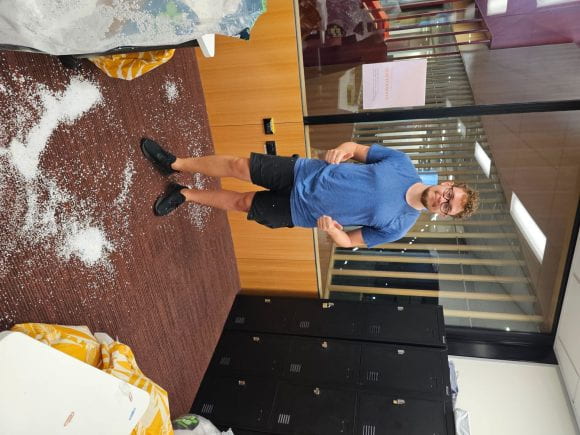
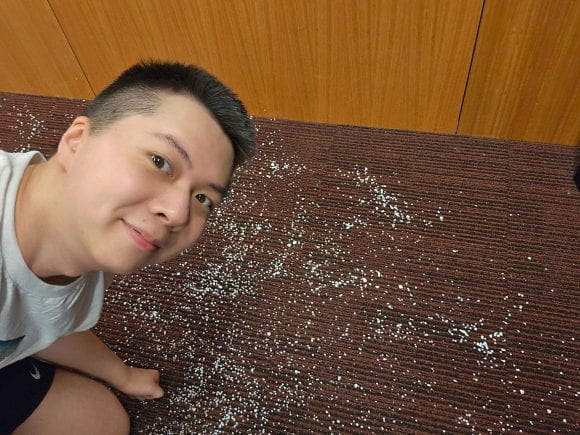
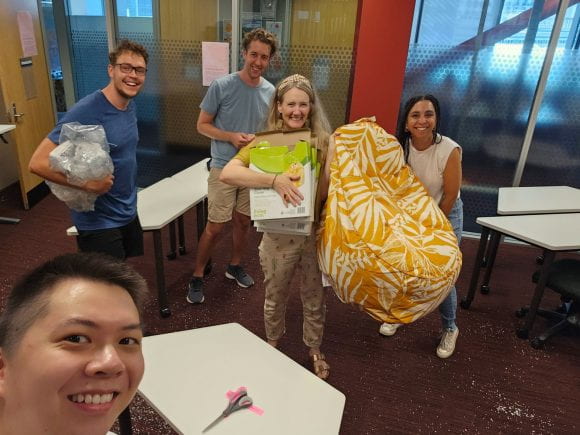
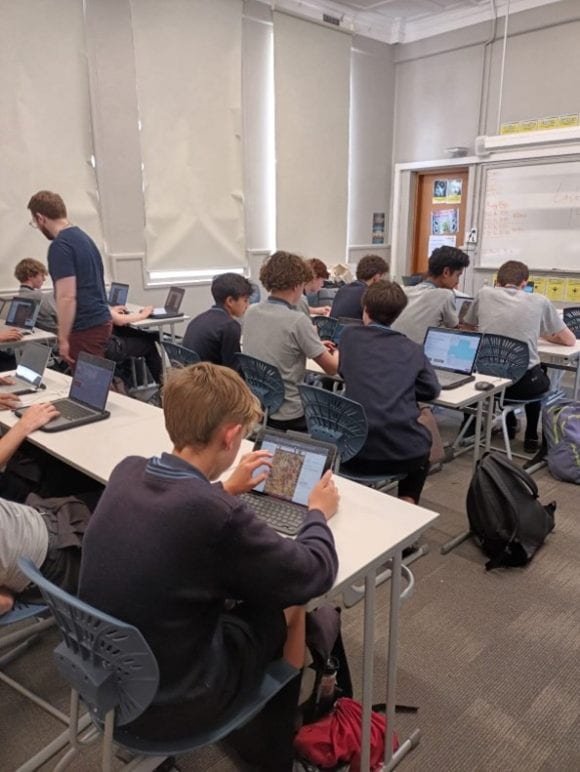
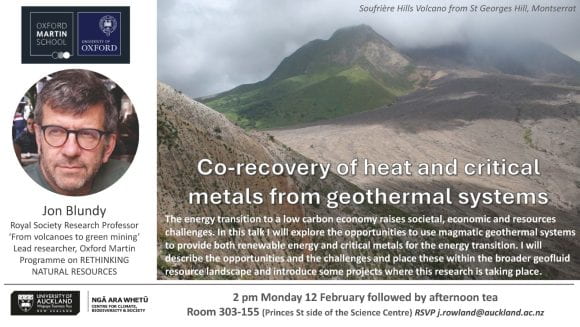
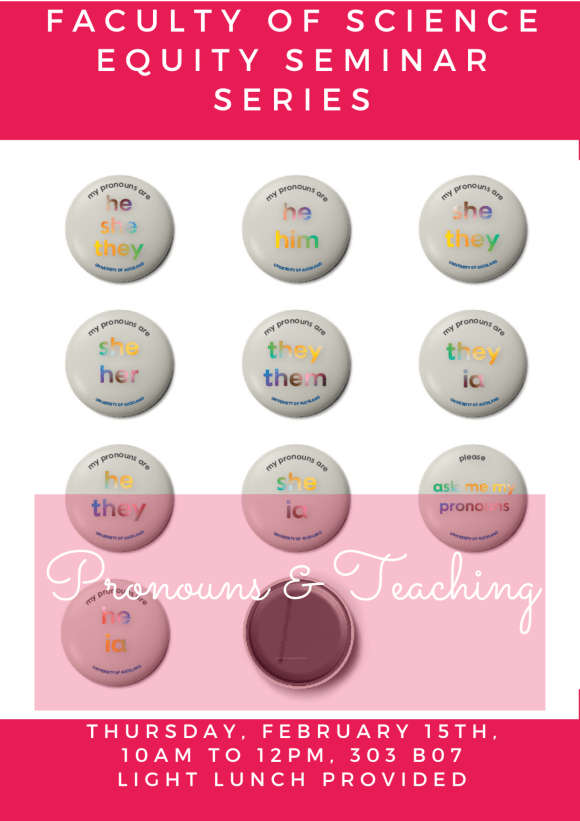
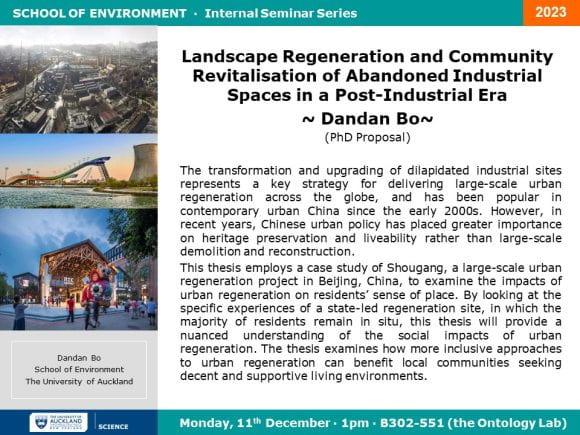
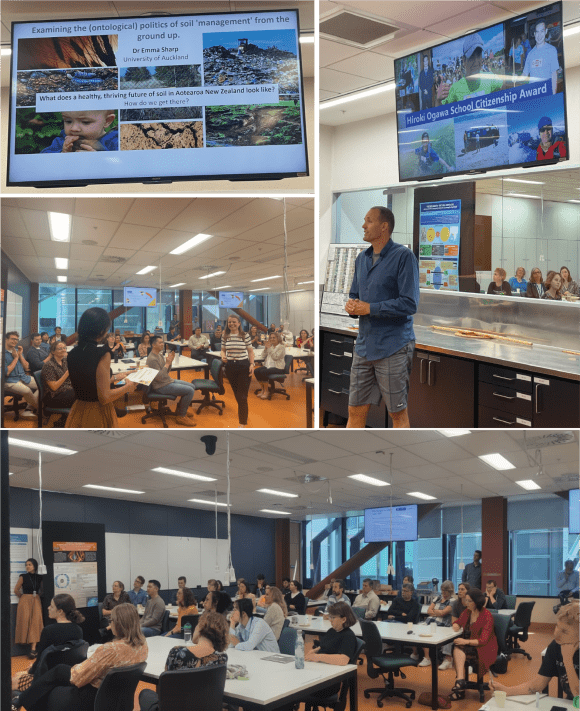 The School of Environment postgraduate research symposium was held on 16th November.
The School of Environment postgraduate research symposium was held on 16th November.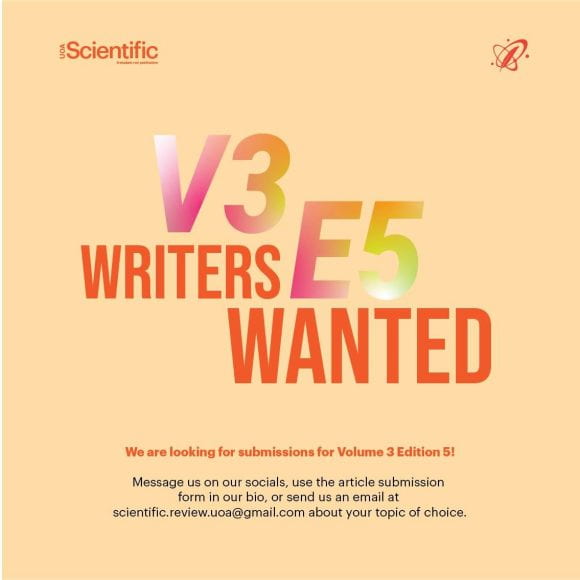
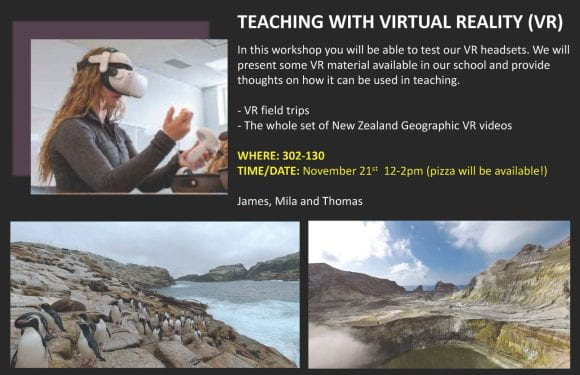

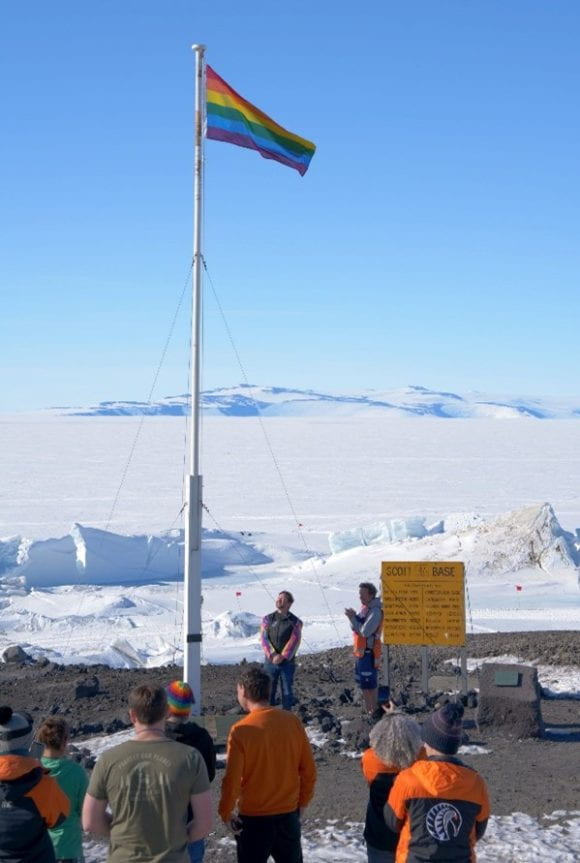
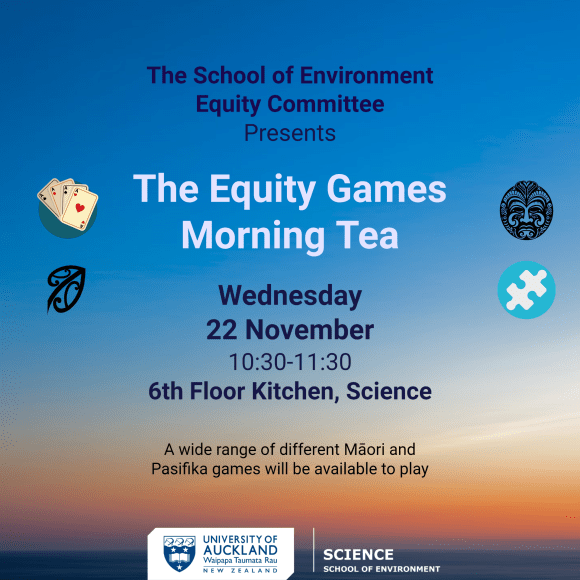 Kia ora koutou,
Kia ora koutou,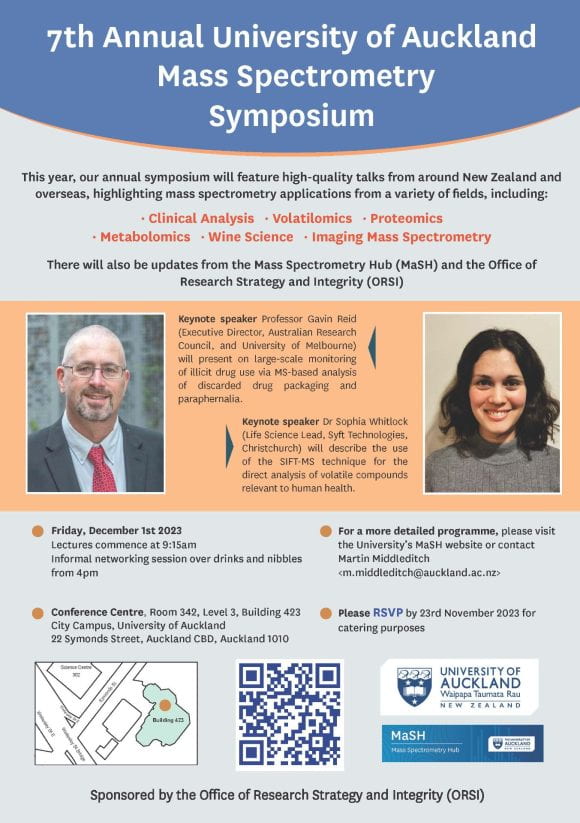
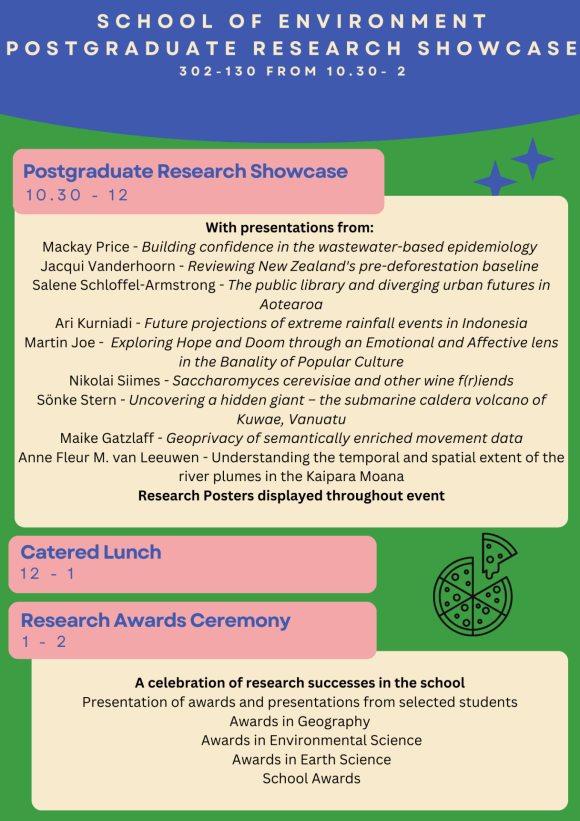
 Kia ora koutou,
Kia ora koutou,